There are many great science lessons out there at the moment on that remarkable interweb contraption, and lots of great science kits and subscriptions, too, but if you’re doing all of that and still want more; if maybe you want to delve a little deeper than the 89th diet coke and mentoes experiment seems to allow (as well worth a 90th go as it undoubtedly is!); if you want to discuss as well as do, then read on!
Now that lockdown has eased a little; now that a garden get-together is no longer entirely off the cards, why not spend some time compiling your guest list for an All-Time STEM Greats Garden Get-Together? Great for flexing those HOTS (Higher Order Thinking Skills) muscles, the possibilities for discussion are endless. Who would you invite? And why? What would they make of us and our current situation? What would they get up to if they were around now? Would Isaac Newton sympathise with us in lockdown, having gone through a similar situation due to the plague? Would Ada Lovelace be the new Carol Vorderman? Would Albert Einstein get on with Elon Musk? Oh, to have such ponderances answered…!
There is also no reason in the world why you shouldn’t actually have that garden party at the end of it. With enough cardboard and a bit of art and craftiness (and an ability to ignore the potential for creepiness), everyone really can attend… just please remember: stick to the lockdown rules of your country! If limits to the number of guests are an issue for you, perhaps you could argue that, of your guests that are already somewhat socially distanced by virtue of their decease, such a temporal interval exempts them from the official tally? This might enable a few more to sneak in, should you feel so inclined. Such decisions, of course, must be your own, but do remember, they will all still want snacks, so keep it sensible.
So, we already have Newton, Lovelace and Einstein as possibles (though, of course, they might be busy…); who else might be worth an invitation? Research as much as you like to help inform your final attendees decision – permission to enter the rabbit-hole is most wholeheartedly granted!
Here are Some Questions to Ponder Concerning Them All:
- What could we learn from them?
- What would they think of our current world/situation?
- What dish would they bring to eat (no sharing – against lockdown rules!)
- Who would be most likely to discover a Covid-19 vaccine?
- Who do you think would get on with whom at the party? Why?
- Who would not get on with whom…and why?
and here are some possible contenders for those golden garden party tickets…
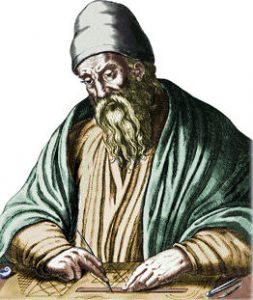
Euclid
Best known for his “Eureka” moment after discovering the law of hydrostatics – would he make your guest list? He certainly doesn’t sound dull! Perhaps researching him a little more will help your decision?
More to think about:
- How would you celebrate your own great discovery?
- Research his contemporaries/near contemporaries – what were they up to? Would any of them make your guest list?
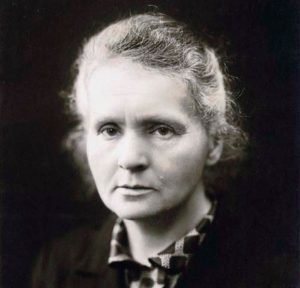
Marie Curie
Not only for her amazing work, her amazing elemental discoveries and her amazing legacy in the fight against cancer, should Marie be a contender for an invitation, but also for the fact that it was all achieved against the backdrop of such stark gender inequalityi Will she be allowed to bring her camping chair along and attend your party?
More to think about:
- What more do you think she could have achieved had she not faced such gender inequality?
- Have a delve into the life of one of her daughters, Irène – would it be fair to say that she inherited that scientific gene…?
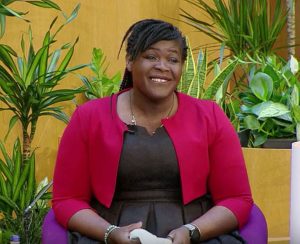
Maggie Aderin-Pocock
Not only is Maggie Aderin-Pocock a highly respected space scientist who happens to also have an impressive portfolio of designs including missile guidance systems and landmine detectors, but she is also an exceptionally engaging television presenter who helps to inspire a new generation to follow their passion for all things STEM!ii With her warmth, charisma and amazing intellect, she definitely wouldn’t be a boring guest!
More to think about:
- Maggie was diagnosed with dyslexia as a child. What traits do you think she needed to not let this get in the way of her scientific dreams? What would you like to achieve by using those same traits?
- Maggie would like to retire to Mars! What could you invent to help her to achieve this dream?iii
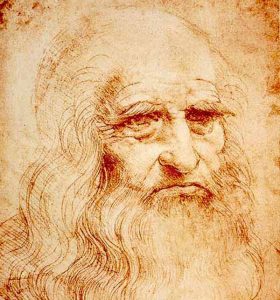
Leonardo Da Vinci
Artist, inventor, scientist, engineer and all round great thinker – would he get an invitation?
More to think about:
- We all know about his art, and we know he did a lot more too, but can you find out in more detail his lesser known stuff?
- What would Da Vinci do today?
- Who would he get on with? Elon Musk, perhaps? Maggie Aderin-Pocock?

Hedy Lamarr
Embodying the kind of wartime spirit that many scientists are now applying to the search for a Covid-19 vaccine, Hedy was not only an exceptionally glamourous Hollywood actress, but also a great inventor who had hoped to help the Second World War effort with her inventions:
“…she devised a radio-guided torpedo system, which led to a “spread-spectrum” technology”. She hoped this could be used by the Allies to stop enemies jamming the radio signals.iv
Unfortunately, the US Navy did not take her up on her offer of her invention. Decades later, however, her ideas were used in mobile phone technology, and by the time she was in her eighties she had gained the kind of recognition as an inventor that perhaps she really was due so many decades before.v
More to think about:
- As an actress and inventor, Hedy was the embodiment of versatility. Would you like to have more than one career, too?
- How many other amazing inventors do you think have slipped under the radar over the centuries, like Hedy very nearly did?
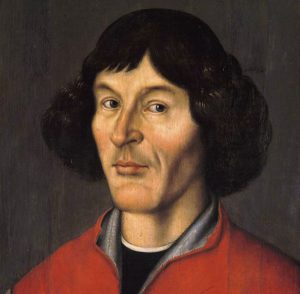
Nicolaus Copernicus
Best known for his heliocentric theory (that the planets orbit the sun, not the earth) that turned the established ideas of the planets and stars upside down. Does this get him an invitation?vi
More to think about:
- What would he think of today’s flat-earthers?
- Would you be happy to “rock the establishment” if your own scientific theory demanded it?
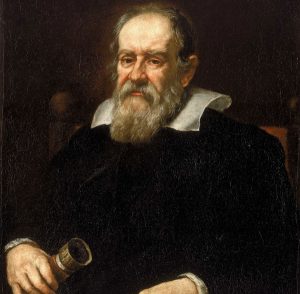
Galilei Galileo
Also unafraid to challenge the prevailing orthodoxy, Galileo improved upon the newly invented telescope and made a number of impressive discoveries in the area of astronomy. But he also appears in the lyrics of Bohemian Rhapsody, so he might be happy to bring the music to the party, too!vii
More to think about:
- He discovered Jupiter’s four largest moons – what would you like to discover?
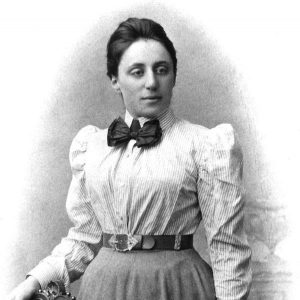
Emmy Noether
Less well known than her patron, Einstein, Emmy Noether was a formidable thinker, and, whilst primarily a mathematician, contributed greatly to the field of physics. The theory of the existence of the Higgs Boson particle relied upon her theorem stating that “every differentiable symmetry of the action of a physical system has a corresponding conservation law.”viii
More to think about:
- How could such a gifted mathematician help in today’s pandemic situation, do you think?
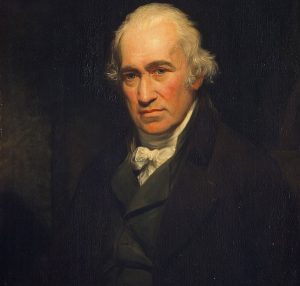
James Watt
Coming up with improvements to the steam engine so ingenious that they are seen as pivotal to the Industrial Revolution, James Watt would certainly have a few interesting things to contribute to a garden party. As testament to his influence, the unit of measurement of electrical and mechanical power was named after him. Who knows what else the man described as “the most useful man who ever lived” could contribute to your party?ix
More to think about:
- Witnessing Watt’s incessant fiddling as a boy, someone quipped to his father, “He has fortune at his finger ends.”x – what would you like his fantastic fiddling fingers to figure out for you today? What will your fiddling fingers invent?
- Watt was not so great at the business side of things, though, leaving his partner Matthew Boulton to deal with that. Apparently, he said that he would “rather face a loaded cannon than settle an account or make a bargain”.xi Who would you team up with to compliment your strengths and weaknesses? What do you think you could then achieve?
- Who else at the party would be good to team up with Watt? What do you think they could achieve?
- What would you like to be named in your honour?
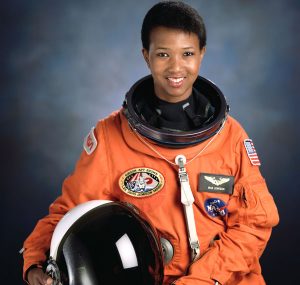
Mae Jemison
No guest list would be complete, surely, without a bona fide space superstar; a genuine, in-the-flesh astronaut. Not only does Mae Jemison fit that bill, but she was also the first African-American woman to travel into space. There would definitely be no awkward silences if you have a real-life astronaut to quiz at your party!xii
More to think about:
- Mae is also principal of the 100 Year Starship project, which is working towards making human travel beyond our own solar system a possibility within the next 100 years. Would you like to be part of that team? How would you like to contribute to their ambitious plans?xiii

Hannah Fry
Another contemporary on the list, Hannah is certainly worthy of consideration for an invitation. Not only is she a gifted mathematician (would she team up with Emmy, do you think…? what do you think such a formidable pairing could achieve…?), but she has also contributed greatly to the accessibility and profile of STEM subjects with her high quality and engaging television and radio programmes, inspiring many young STEMsters to continue with their passions. A hot topic at the garden party might be her programme “Contagion: The BBC4 Pandemic”…
More to think about:
- Hannah presented the Royal Institution Christmas Lectures in 2019. Looking over the list of others to have delivered lectures in this prestigious series, who are your favourites?
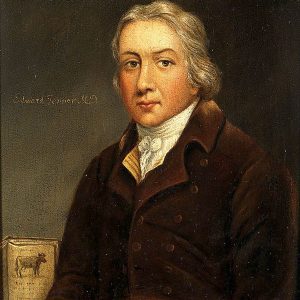
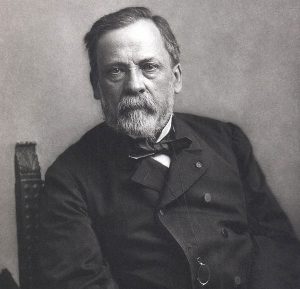
Edward Jenner and Louis Pasteur
No list of possibilities would be complete without Jenner and Pasteur. They would, perhaps, be guests of honour at many a current lockdown garden party, if they hadn’t already been requisitioned by any government worth their salt, that is.
Jenner horrified many at the time when he injected an 8-year-old boy with cowpox pus in an attempt to provide him with immunity to smallpox. He did, however, eventually prove right the received wisdom that milkmaids who had already had the milder disease of cowpox did not then go on to get the far more serious disease of smallpox. It is even thanks to Jenner that we have the term “vaccine”; what would he think about the frantic search for one today?
With his germ theory and his discovery that resistance to a disease could be prompted by weakened strains of that disease being injected into a person, Pasteur’s work was revolutionary, and that’s before even considering his pioneering work with vaccinations and the fact that it lead to the eradication of diptheria. What on earth would he think of Covid-19?xiv
More to think about
- From the Latin word meaning what is the term “vaccine” derived?
- What did a cartoon of 1802 show, suggesting more than a little suspicion concerning Jenner’s activities with cowpox?
- Pasteur was passionately artistic as a child. How do you think his creativity might have helped his science?xv
- Pasteur’s ideas spurred much of Robert Koch’s equally important scientific work. What were Koch’s most important scientific contributions? Who was his assistant after whom a famous bit of scientific apparatus was named?
***
Hmm…so many decisions, so little space in the garden…And, of course, you don’t have to limit yourself to just the possibilities set out above; you could add any of your own personal STEM favourites instead; the decision is entirely yours. Whoever you choose in the end, though, have a wonderful party, try not to use too much cutlery and crockery as no one can come in to help you wash up, and, above all, remember:
Stay Alert > Control your Chemicals > Salve Scientia
[i] Newkey-Burden, C. (2018) 64 Geeks: The Brains Who Shaped Our World. (pp. 60-61). Ilex Press.
[ii-iii] https://www.tes.com/teaching-resource/maggie-aderin-pocock-profile-and-writing-task-black-history-in-britain-ks2-11957964
[iv-v] Newkey-Burden, C. (2018) 64 Geeks: The Brains Who Shaped Our World. (p. 83). Ilex Press.
[vi] Newkey-Burden, C. (2018) 64 Geeks: The Brains Who Shaped Our World. (pp. 20-21). Ilex Press.
[vii] Newkey-Burden, C. (2018) 64 Geeks: The Brains Who Shaped Our World. (pp. 22.23). Ilex Press.
[viii] Newkey-Burden, C. (2018) 64 Geeks: The Brains Who Shaped Our World. (pp. 70-71). Ilex Press.
[ix-xi] Newkey-Burden, C. (2018) 64 Geeks: The Brains Who Shaped Our World. (pp. 32-33). Ilex Press.
[xii] https://www.tes.com/teaching-resource/writing-a-biography-6413084
[xiii] Ignotofsky, (2016). R. Women in Science: 50 Fearless Pioneers who Changed the World. (p.109). Ten Speed Press. https://100yss.org/mission/purpose
[xiv-xv] Newkey-Burden, C. (2018) 64 Geeks: The Brains Who Shaped Our World. (p. 43). Ilex Press.
About the author: Caroline Hooton-Picard is an adviser for Potential Plus UK. She has a background in mental health, having worked for Suffolk Mind and also in private practice, and has a first class degree in Philosophy from the University of Essex. She also has a High Learning Potential daughter who keeps her very much on her toes!






